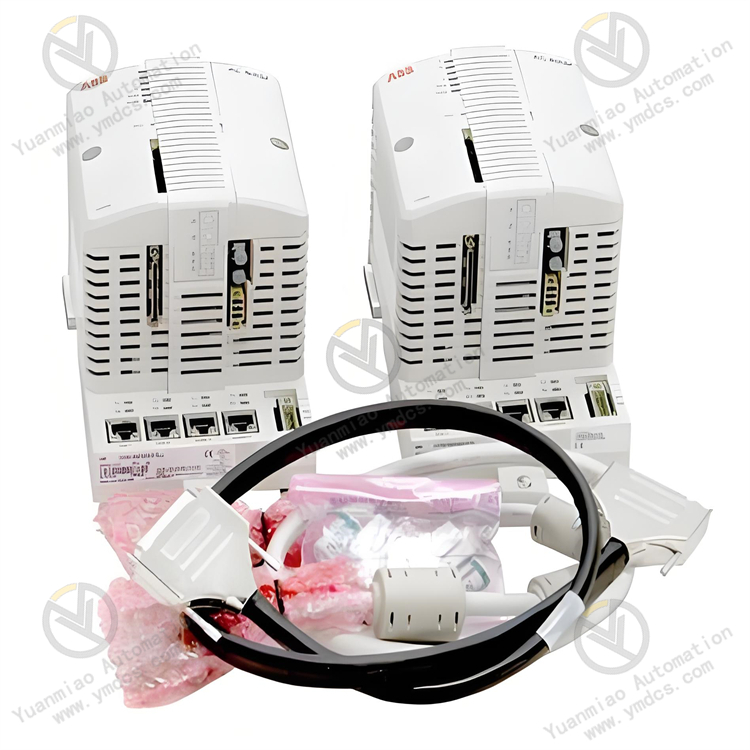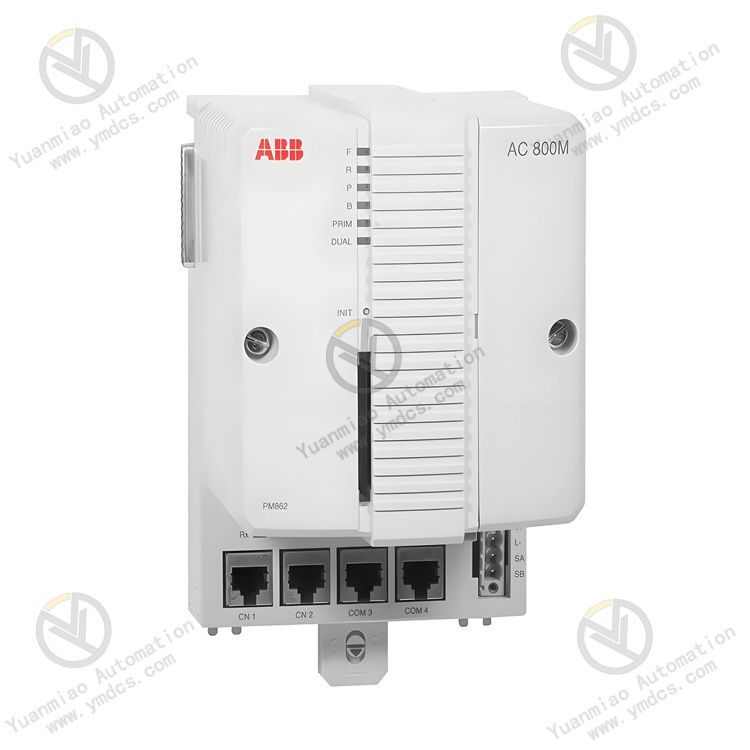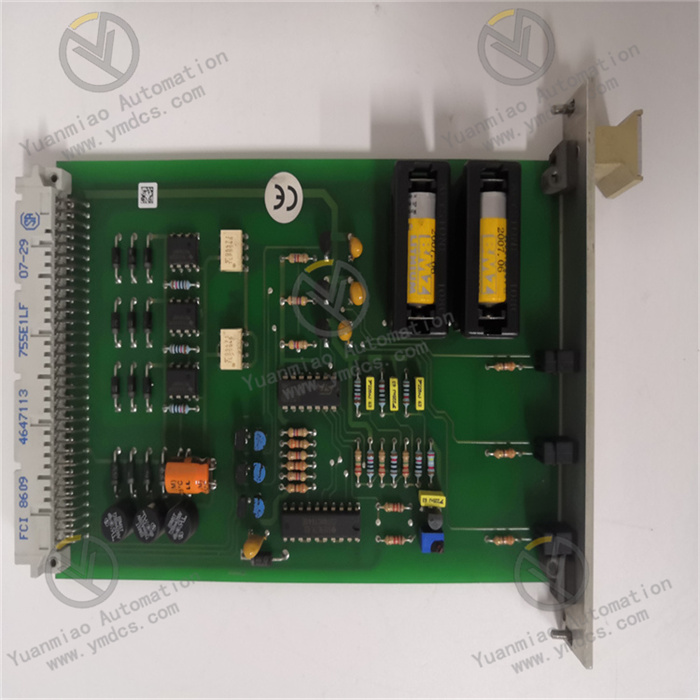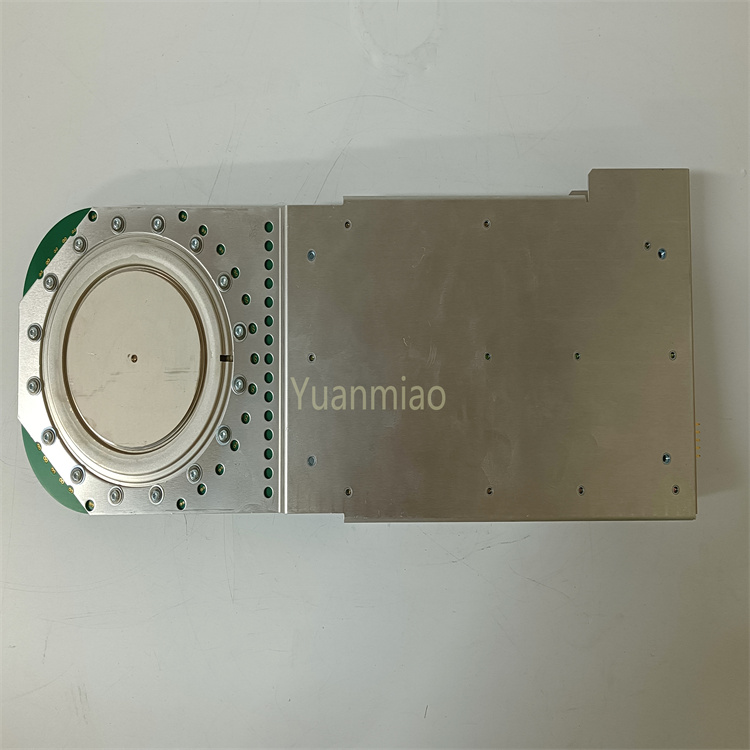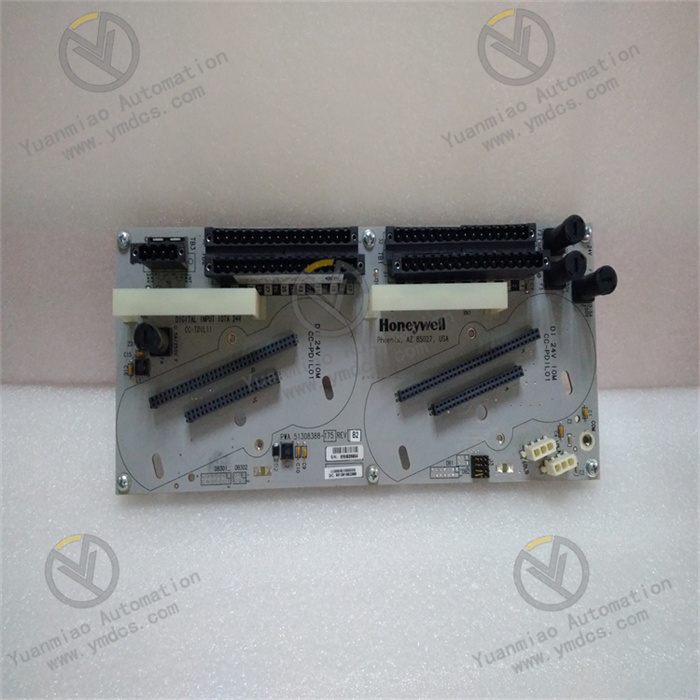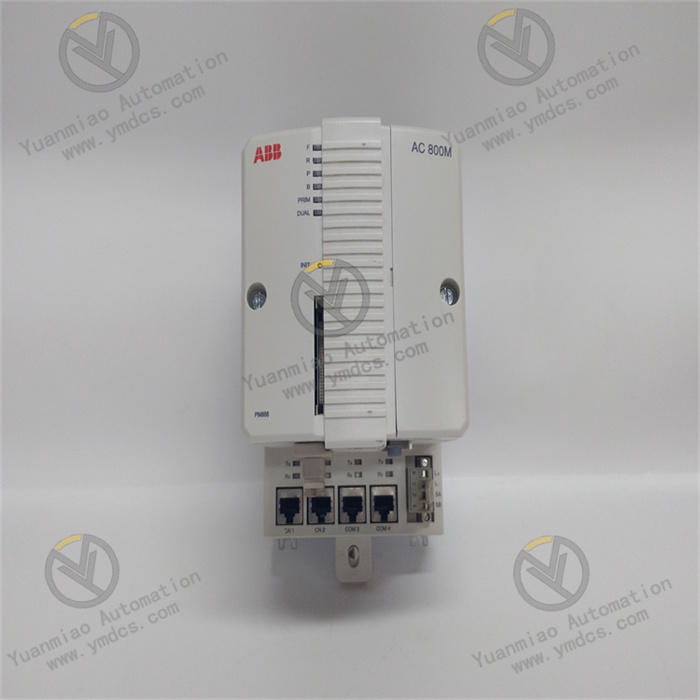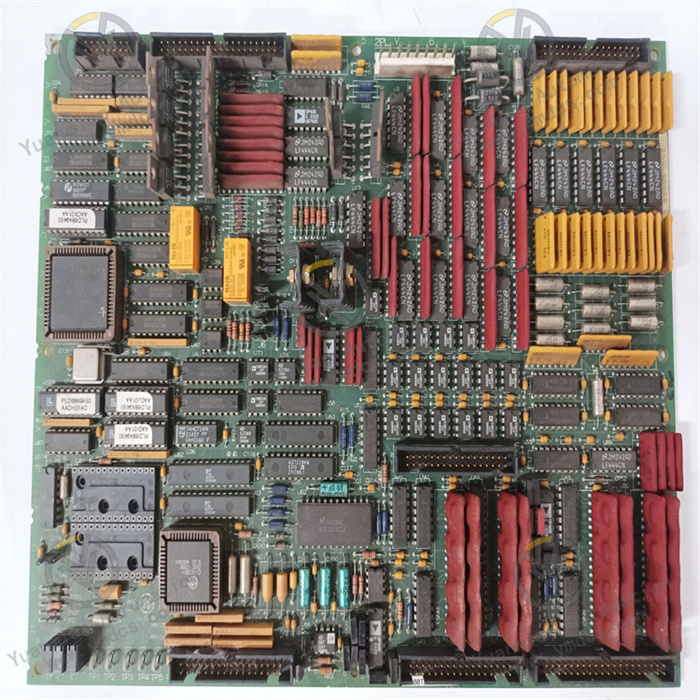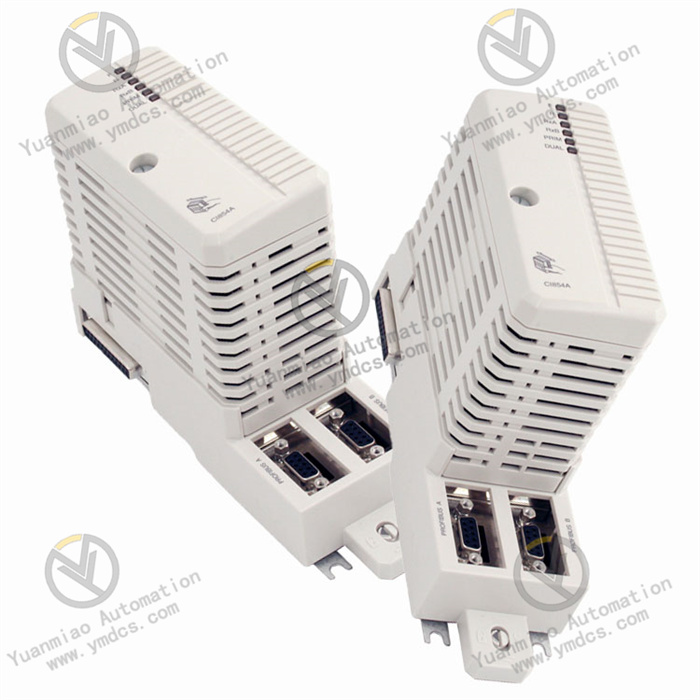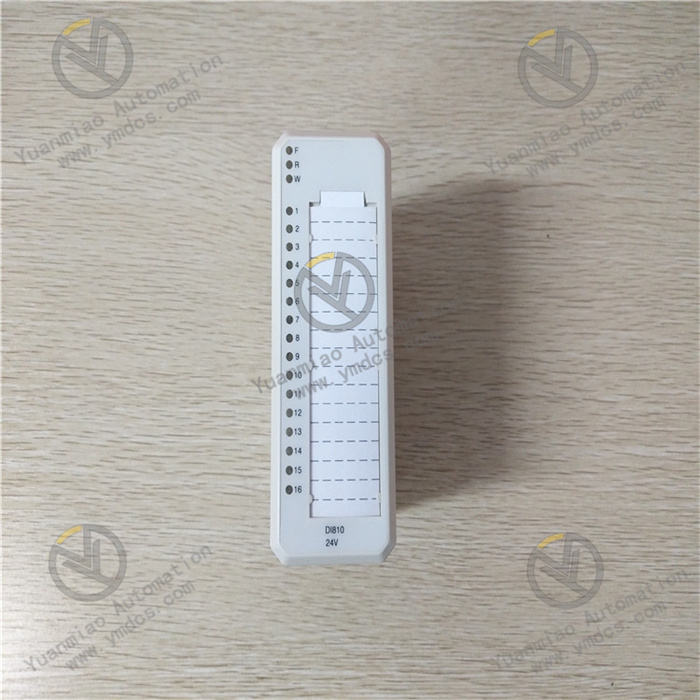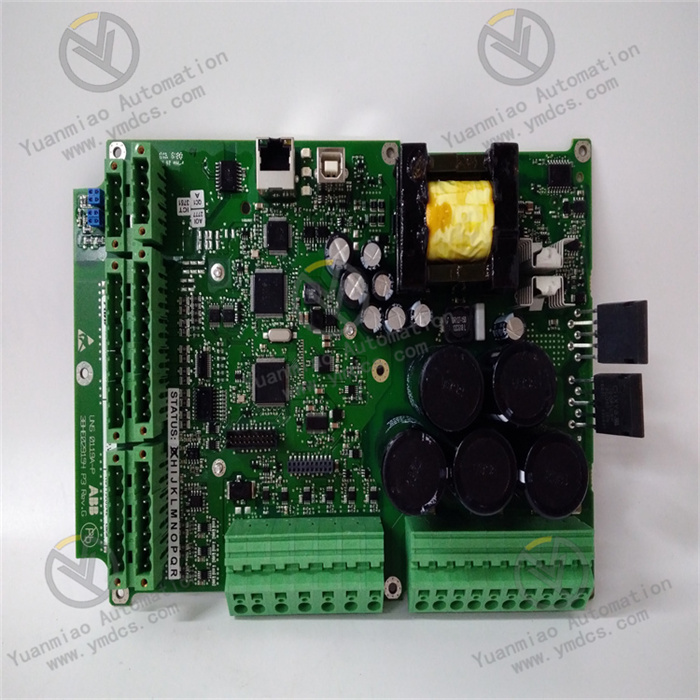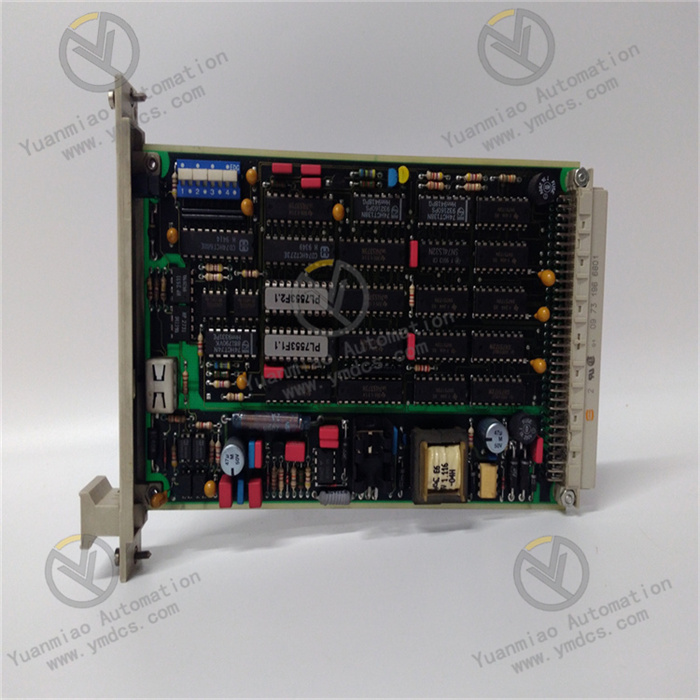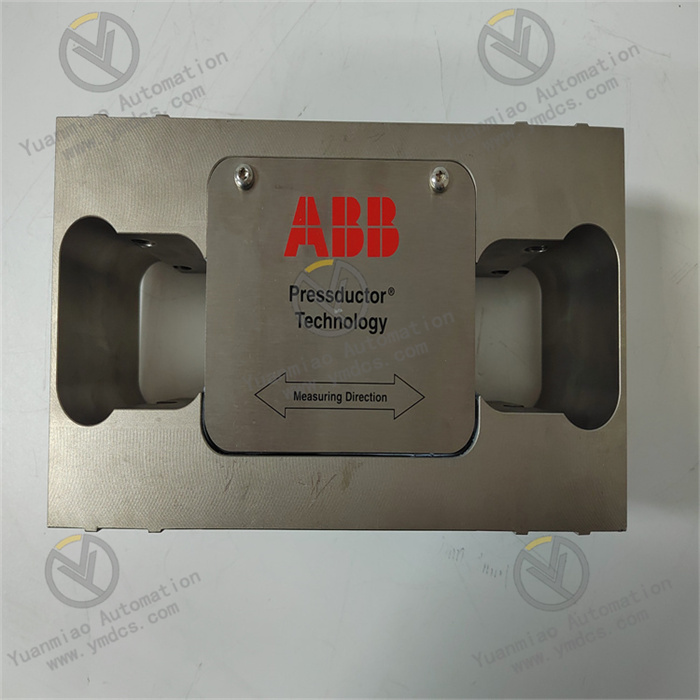Description
ABB PM862K02 3BSE081636R1
The ABB PM862K02 3BSE081636R1 is a redundant processor unit designed for the ABB AC 800M control system. It delivers high reliability, real-time performance, and scalability through its dual-CPU redundant architecture, multi-protocol communication capabilities, real-time control logic execution, and comprehensive fault tolerance mechanisms. Its working principle encompasses the entire process of data acquisition, arithmetic processing, communication interaction, and system management, making it a core component for "stable, efficient, and intelligent" control in modern industrial automation.
Hardware Components
- CPU:
Dual PM862 CPUs provide redundancy and failover capabilities, ensuring continuous operation of the control system even if a processor unit fails. Each CPU operates at 67MHz with 32MB of memory, capable of handling complex control tasks. - Communication Interfaces:
- Two RJ45 Ethernet ports (CN1, CN2) for connecting to the control network.
- Two RJ45 serial ports (COM3, COM4): COM3 is an RS-232C port with modem control signals; COM4 is isolated for configuration tools.
- CAN bus support for flexible device connectivity.
- Other Components:
Microprocessor, Random Access Memory (RAM), Real-Time Clock (RTC), LED indicators, initialization button, and Compact Flash interface.
Features & Advantages
- High Reliability:
Robust design with simple fault diagnosis, full EMC certification, IP20 protection, and stable operation in industrial environments. - Scalability:
Modular design allows step-by-step system expansion. - Excellent Communication:
Multi-protocol support (Ethernet, PROFIBUS DP, etc.) with redundant Ethernet ports for reliable data transmission. - Flexible Configuration:
Configurable via 800xA Control Builder for customized settings.
Technical Specifications
- Processor:
- CPU: MPC866 microprocessor, 67MHz clock frequency.
- Performance: 0.18ms for 1000 Boolean operations.
- Memory:
- RAM: 32MB (battery-backed for applications).
- Flash: 4MB Flash PROM (firmware storage), Compact Flash card (application and cold-start data).
- Communication Interfaces:
- Ethernet: Two RJ45 ports (CN1, CN2), IEEE 802.3 compliant, 10Mbit, supporting MMS and IAC. Recommended backbone: 100Mbit switched Ethernet.
- RS-232C: Two RJ45 serial ports (COM3, COM4): COM3 (75-19200 baud with modem control); COM4 (isolated, 9600 baud for configuration).
- Power Supply:
- Voltage: 24V DC (19.2-30V DC input range).
- Current: 210mA typical, 360mA max (excluding module bus and CEX-bus power).
- Power: 5.1W typical, 8.6W max (including all buses).
- Redundant Power: Supports redundant power status inputs (SA, SB), 30V max input voltage.
- I/O Characteristics:
- I/O Clusters: 1 electrical + 7 optical on non-redundant module bus; 7 optical on redundant bus.
- I/O Capacity: Up to 96 I/Os (single PM862) or 84 I/Os (redundant PM862).
- Bus Scan Rate: 0-100ms (depends on I/O module count).
- Physical Dimensions:
- Width: 119mm
- Height: 186mm
- Depth: 135mm
- Weight: 2800g
- Environmental Parameters:
- Operating Temperature: +5°C to +55°C
- Storage Temperature: -40°C to +70°C
- Humidity: 5-95% (non-condensing)
- Altitude: 2000m max
- Protection Class: IP20
- Other Features:
- Clock Synchronization: 1ms precision via CNCP protocol.
- OPC Client: Up to 3000 events in the event queue.
- OPC Server Speed: 36-86 events/sec, 113-143 data messages/sec.
- CEX Bus: 12 modules supported, 2.4A max power current.
Working Principle
The PM862K02 executes control logic, data processing, communication coordination, and system management through the following mechanisms:
1. Hardware Architecture & Component Coordination
- Dual-CPU Redundancy:
Active/Standby CPUs with real-time synchronization via high-speed internal bus. - Communication Interfaces:
Ethernet (redundant paths), serial ports (isolated COM4), and CAN bus for I/O modules. - Storage & Clock:
Compact Flash for firmware/programs; RTC for precise time stamping.
2. Control Logic Execution Flow
- Data Acquisition:
Scans I/O modules, preprocesses analog/digital signals (filtering, linearization). - Logic Processing:
Executes PID control, safety interlocks, and data analysis based on IEC 61131-3 programming. - Output Control:
Converts results to analog/digital signals with output validation and fault protection.
3. Communication Mechanisms
- Industrial Ethernet:
Modbus TCP, PROFIBUS DP, and ABB proprietary protocols with redundant links. - Serial Communication:
RS-232/RS-485 with isolation for legacy devices. - CAN Bus:
CANopen protocol for high-speed I/O data transfer.
4. Redundancy & Fault Handling
- Hot Standby Switching:
Automatic failover in <50ms upon detection of faults (e.g., watchdog timeout). - Self-Diagnosis:
Continuous monitoring of CPU, memory, and I/O connections with LED/alarm indicators. - EMC Protection:
Isolated power, shielded enclosure, and filtering for industrial environments.
5. System Management
- Firmware Updates:
Remote upgrade via Ethernet (FTP/HTTP). - Time Synchronization:
NTP or hardware clock for event logging consistency. - Event Logging:
Stores critical operations (program downloads, faults) for auditing.
Typical Applications
- Process Industry:
Closed-loop temperature/pressure control for reactors; safety interlock systems for refineries. - Power Systems:
Turbine speed control; substation automation. - Manufacturing:
Robot coordination; precision motion control. - Energy Management:
Microgrid control; HVAC optimization in smart buildings.
Other Brand-Related Products
GE IS200TRPGH1BDD Trip Solenoid Control Board
Bently Nevada 1900/65A-01-01-01-00-00 | 1900/65A General Purpose Equipment Monitor
TRICONEX AI2351 7400210-010 Input/Output Module
Woodward 5466-1035 | MicroNet CPU5200
Schneider 140ACO13000 | Analog Output Module


